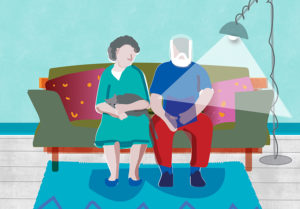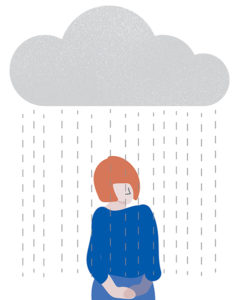
Earlier this year we published the findings our DeStress study which examined the health and wellbeing of individuals caring for a spouse with dementia. We collected data on various aspects of their health and wellbeing, their stress levels and the supports that they access and receive.
On World Mental Health Day I’d like to share with you some of our findings about their mental health and psychological well-being
Depression and anxiety were common. About 37% of carers reported clinically significant depressive symptoms and a further 40% reported levels of depressive symptoms that were not clinically significant. About 35% reported anxiety symptoms indicating borderline (15%) or probable (20.6%) mood disorders.
Anxiety, stress, burden and quality of life generally improved among those whose spouse had gone into long-term care and those who had been bereaved at the follow-up assessment. However, the carers’ depression and distress did not change significantly over the follow-up period.

Men reported significantly better mental health, quality of life and life satisfaction than women. Older carers tended to report fewer symptoms of depression, anxiety, distress, burden, and stress and they rated a better quality of life and life satisfaction than younger carers.
You can read the full report here
De-stress Carers Report
Caring for a loved one with dementia can be rewarding but it can also be overwhelming and isolating. If you know someone who is providing care, consider visiting them for a cuppa and a chat. We often ask how the person with dementia is doing but why not ask their carer how they are doing? If you are providing care yourself don’t be afraid to reach out and ask for help – you might find these resources that I developed useful www.hellobrain.eu/carers